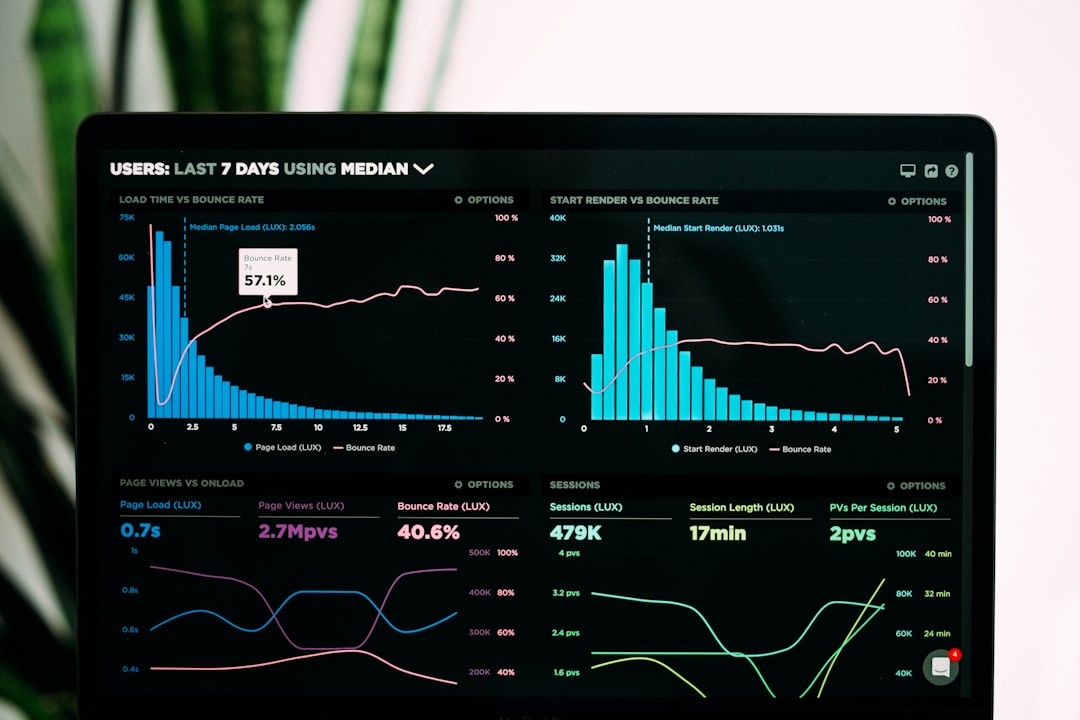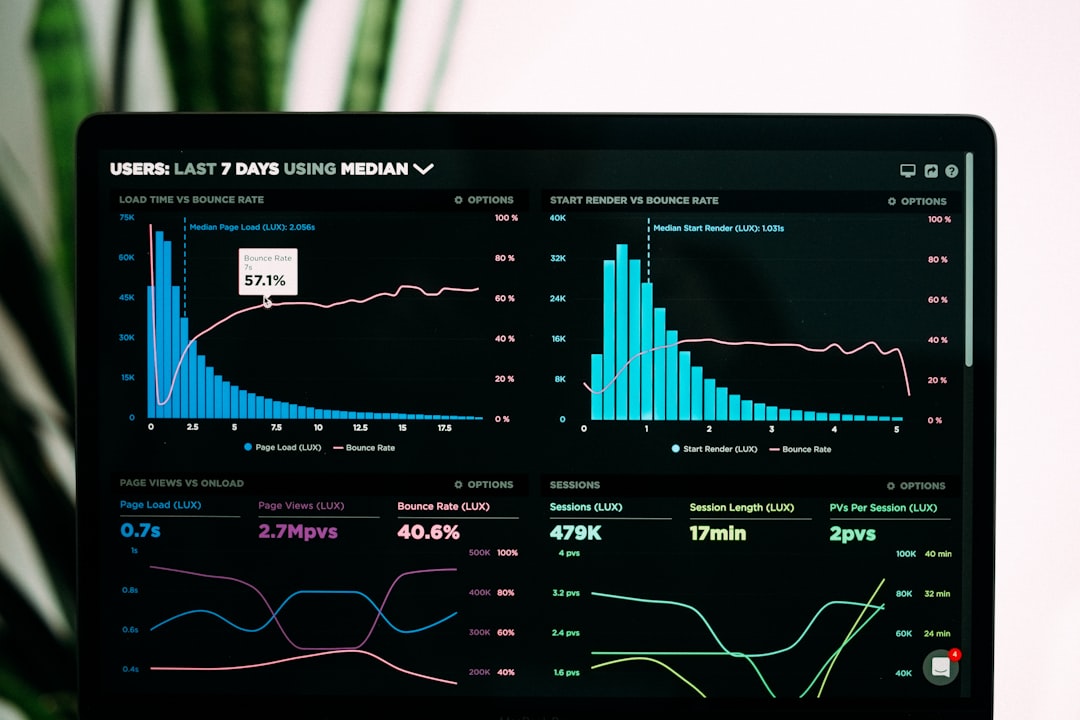Unlock encrypted content
Please enter your SSCE key to initiate on-the-fly decryption.
Decryption key: (Click cancel if you don't have the key)
Copied link to clipboard.
This feature is unavailable for free accounts. Upgrade now and enjoy all Premium benefits.
Go Premium!
This feature is unavailable for free accounts. Upgrade now and enjoy all Premium benefits.
Go Premium!
Please open this page in browser ( Google Chrome or Safari ) to use this feature.
Open In Browser
The Future of Digital Transformation: Exploring Virtual Realities, Spatial Computing, and Advanced Technologies.
Random related video for this blog.
Copied share link to clipboard.
As we advance into an era defined by rapid technological changes, the convergence of various technologies marks a significant shift in how we interact with information and each other. Virtual realities, spatial computing, cryptocurrency, digital transformation, and advanced driver assistance systems (ADAS) are reshaping industries and personal experiences alike. This article delves into these key areas, focusing on how they interconnect and the implications they hold for the future.
Understanding Virtual Realities
Virtual realities (VR) have emerged as a transformative force, creating immersive environments that can simulate real-world experiences. The technology has applications in various fields, including gaming, education, and healthcare. For instance, VR is revolutionizing medical training by allowing students to practice surgical procedures in a risk-free environment. A notable example is the use of VR in the training of surgeons at institutions like Johns Hopkins University, where students can engage in realistic simulations of complex surgeries. Moreover, VR is enhancing remote collaboration. Platforms such as AltspaceVR and Spatial allow teams to meet in virtual spaces, fostering a sense of presence and interaction that traditional video conferencing lacks. This capability is particularly crucial in a world where remote work is becoming the norm. The ability to collaborate in a shared virtual environment can significantly enhance creativity and productivity. As VR technology continues to evolve, its integration with spatial computing opens new avenues for interaction. Spatial computing blends physical and digital worlds, enabling users to interact with digital information in a three-dimensional context. This development is crucial for applications in architecture, design, and education, where spatial awareness is vital. The combination of VR and spatial computing could lead to groundbreaking advancements in how we visualize and manipulate data.The Role of Spatial Computing
Spatial computing represents a paradigm shift in how we perceive and engage with digital content. By understandingthe physical environment and overlaying digital information, spatial computing enhances our interaction with technology. Augmented reality (AR) is a key player in this space, allowing users to see digital objects superimposed on the real world. For example, IKEA has developed an AR app that lets customers visualize how furniture would look in their homes before making a purchase, significantly improving the shopping experience. Furthermore, spatial computing is critical in urban planning and smart city development. By utilizing 3D models and simulations, planners can visualize the impact of new developments on existing environments. This technology enables better decision-making and community engagement, as stakeholders can see potential changes in a more dynamic and interactive way. In the realm of education, spatial computing can transform learning experiences. Imagine students learning about ancient civilizations by exploring 3D reconstructions of historical sites. This immersive approach not only makes learning more engaging but also aids retention and understanding. As educational institutions begin to adopt these technologies, the traditional classroom environment will evolve, fostering a more interactive and experiential learning atmosphere.
File Collaboration in the Age of Digital Transformation
As organizations undergo digital transformation, efficient file collaboration becomes paramount. The shift towards remote work has necessitated tools that allow teams to work together seamlessly, regardless of their physical locations. File collaboration platforms like FileLu.com are at the forefront of this movement, offering secure and scalable solutions for file storage and sharing. FileLu.com stands out by providing users with a significant storage capacity, with plans ranging from 128 GB to 500 TB, catering to the needs of both individuals and enterprises. The platform allows users to transfer large files up to 10 GB for free, making it an attractive option for businesses that deal with substantial data. In a world where data is king, having a reliable and efficient file collaboration tool is essential for maintaining productivity and ensuring that teams can work together effectively. Moreover, FileLu.com prioritizes security and privacy, crucial elements for any organization handling sensitive information. With options like Secure Solo Cipher Encryption (SSCE), users can ensure that their data is protected against unauthorized access. This focus on security is increasingly important as cyber threats become more sophisticated. Organizations must be vigilant in safeguarding their data, and tools that offer robust security features are invaluable in this regard. The integration of cryptocurrency into file collaboration platforms is another trend worth noting. As digital currencies gain traction, they offer new ways for users to transact and engage with online services. FileLu.com could potentially explore cryptocurrency payment options, streamlining transactions and enhancing user experience. This innovation aligns with the broader trend of digital transformation, where traditional business models are being redefined.Cryptocurrency: A New Era of Transactions
Cryptocurrency has emerged as a revolutionary force in the financial landscape, enabling decentralized transactions that challenge traditional banking systems. Bitcoin, Ethereum, and other cryptocurrencies have gained widespread acceptance, offering users an alternative to conventional currencies. The appeal of cryptocurrency lies in its potential for lower transaction fees, faster transfers, and enhanced privacy. Businesses are increasingly adopting cryptocurrency for their transactions, recognizing its advantages. For instance, companies like Overstock and Newegg accept Bitcoin as payment, catering to a growing customer base that prefers using digital currencies. This shift signifies a broader trend towards embracing new financial technologies, which can enhance customer experience and streamline operations. Furthermore, the rise of decentralized finance (DeFi) is reshaping how individuals and businesses approach financial transactions. DeFi platforms allow users to lend, borrow, and trade assets without intermediaries, reducing costs and increasing accessibility. This democratization of finance has the potential to empower individuals and small businesses, enabling them to access financial services that were previously out of reach. As cryptocurrency continues to evolve, its integration with other technologies will likely lead to innovative applications. For instance, smart contracts on blockchain networks can automate agreements and transactions, offering greater efficiency and transparency. This technology could be particularly useful in file collaboration, where contracts and agreements could be securely executed without the need for intermediaries.Advanced Driver Assistance Systems (ADAS) and Their Impact
Advanced Driver Assistance Systems (ADAS) represent a significant leap forward in automotive technology, enhancing vehicle safety and driving experience. These systems utilize a combination of sensors, cameras, and artificial intelligence to assist drivers in various ways, from parking assistance to collision avoidance. As the automotive industry shifts towards automation, ADAS is paving the way for fully autonomous vehicles. The implementation of ADAS has proven to reduce accidents and improve road safety. For example, systems that provide lane-keeping assistance help prevent unintentional lane departures, while adaptive cruise control maintains safe distances from other vehicles. According to the National Highway Traffic Safety Administration, vehicles equipped with ADAS features have seen a notable decrease in crash rates, highlighting the effectiveness of these technologies. Moreover, the integration of ADAS with other technologies, such as spatial computing, could further enhance their capabilities. Imagine a vehicle equipped with AR that displays navigation information directly on the windshield, allowing drivers to maintain focus on the road while receiving real-time guidance. This combination of technologies could transform the driving experience, making it safer and more intuitive. As the automotive industry continues to evolve, the adoption of ADAS will likely accelerate. Manufacturers are investing heavily in research and development to enhance these systems, with the ultimate goal of achieving full autonomy. This transformation will not only change how we drive but also how we perceive transportation, leading to a future where mobility is safer and more efficient.The Future of Cloud Computing Services
Cloud computing services have become a cornerstone of modern business operations, offering flexibility, scalability, and cost-effectiveness. As organizations increasingly rely on digital solutions, the demand for cloud storage and computing capabilities continues to grow. FileLu.com exemplifies the evolution of cloud computing, providing users with a secure platform for file storage and collaboration. The benefits of cloud computing extend beyond mere storage capacity. Organizations can leverage cloud services to access powerful computing resources on demand, enabling them to run complex applications without the need for extensive on-premises infrastructure. This shift allows businesses to focus on innovation and growth rather than managing IT resources. Moreover, the integration of advanced technologies such as artificial intelligence and machine learning with cloud computing is unlocking new possibilities. For instance, businesses can analyze vast amounts of data stored in the cloud to gain insights into customer behavior, market trends, and operational efficiencies. This data-driven approach empowers organizations to make informed decisions and stay competitive in an ever-evolving landscape. As cloud computing continues to mature, security remains a top priority. Users must ensure that their data is protected against breaches and unauthorized access. FileLu.com addresses these concerns by offering robust security measures, including SSL encryption and options for Secure Solo Cipher Encryption (SSCE). By prioritizing data integrity and privacy, FileLu.com positions itself as a trusted partner in the digital transformation journey.Conclusion: Embracing Technological Advances
The intersection of virtual realities, spatial computing, cryptocurrency, ADAS, and cloud computing services signifies a transformative shift in how we interact with technology and each other. As organizations embrace digital transformation, the integration of these technologies will enhance collaboration, improve safety, and redefine business operations. File collaboration platforms like FileLu.com play a pivotal role in this evolution, offering users secure and scalable solutions for managing their data. With the potential for cryptocurrency integration and a commitment to privacy, FileLu.com is well-positioned to meet the needs of individuals and businesses alike in this ever-changing landscape. As we look to the future, it is essential for organizations to remain agile and open to adopting new technologies. By embracing innovation and prioritizing security, businesses can navigate the complexities of the digital age and thrive in a world defined by rapid technological advancements.Frequently Asked Questions (FAQs)
Question: What is FileLu.com? Answer:
FileLu.com is a secure file collaboration platform offering cloud storage solutions with various plans and features.
Question: How does FileLu.com ensure data security? Answer:
FileLu.com employs SSL encryption and offers Secure Solo Cipher Encryption (SSCE) for enhanced data protection.
Question: Can I transfer large files using FileLu.com? Answer:
Yes, FileLu.com allows users to transfer files up to 10 GB for free, with no size limit for premium plans.
By Amelia Isabella.
Email: [email protected]
Related
Cybernetics: Exploring the Potential of Virtual Reality, Transhumanism, and 5G...
June 21, 2023
Read More
Cyberpunk Data Analytics: Exploring the Future of Immersive Media Storage...
June 21, 2023
Read More
5G Technology: Revolutionizing Connectivity and Enabling Innovative Solutions
June 21, 2023
Read More
Data Storage: Seamless File Integration with Third-Party Apps and Enhanced...
June 21, 2023
Read More
Intuitive File Collaboration Interfaces: Enhancing Productivity and Efficiency
June 21, 2023
Read More
Wearable Devices: Revolutionizing Data Sharing and Brain-Computer Interfaces
June 21, 2023
Read More
Scalable Cloud Storage Architecture: Empowering the Future of Data Management
June 21, 2023
Read More
Autonomous Driving, Neurotechnology, and 3D Printing: Advancements in Data Storage...
June 21, 2023
Read More
Popular
Latest
The Future of Digital Transformation: Exploring Smart Homes, Efficient File...
November 30, 2025
Read More
Exploring the Benefits of Cloud Storage and Innovative Technologies in...
November 26, 2025
Read More
The Future of Technology: Exploring Biohacking, Space Tourism, and Digital...
November 23, 2025
Read More
The Future of File Sharing: Streamlined Workflows for Photographers and...
November 19, 2025
Read More
Exploring the Intersection of Technology: From Cybersecurity to Augmented Reality...
November 16, 2025
Read More
The Future of File Management: Embracing Edge Computing and Efficient...
November 12, 2025
Read More
The Future of File Sharing: Exploring User-Friendly Solutions and Data...
November 5, 2025
Read More
The Future of Cloud Storage: How FileLu Empowers Creative Professionals...
November 2, 2025
Read More
The Future of Autonomous Technologies: Innovations in Robotics, File Sharing,...
October 29, 2025
Read More
Emerging Technologies Revolutionizing File Management: From Li-Fi to Robust Collaboration...
October 26, 2025
Read More
Emerging Technologies: Exploring the Impact of File Access Auditing, Genetic...
October 19, 2025
Read More
The Future of Data Storage: Exploring Advanced Encryption, Mobile Integration,...
October 5, 2025
Read More
Exploring the Future of Data Management: Security, Efficiency, and Cognitive...
September 28, 2025
Read More
Revolutionizing Data Management: Innovations in Storage, Security, and Sustainable Technology.
September 24, 2025
Read More


















